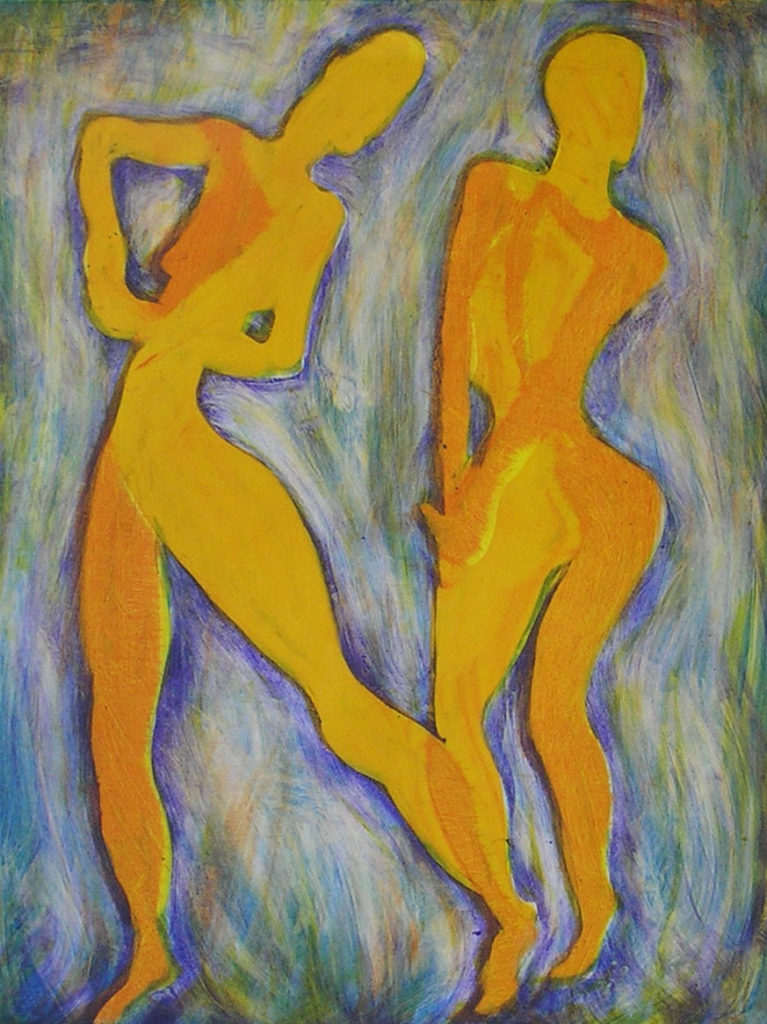By Ellen McCord, Faculty of RPI and Editor of The Resonance Code
“Do you need an editor?” I asked Spring what sounded like a simple question at the time. The answer and all that followed changed the course of my life.
Spring and I met in an online global writing class. As we got to know each other, Spring revealed her desire to write what she called at the time “a personal I Ching”. I thought she wanted to capture something personal about her life, a memoir maybe or a window into her history through the context of China’s ancient traditions. I now realize she was plumbing the depths of ancestral wisdom, her own ancient cultural history. She sought a way to capture the insight she held about the very personal nature of the wisdom offered through the 64 hexagrams we call the I Ching, the book of change.
Late last Fall, when I contacted Spring to see how she was doing, she said, “I’m writing the book.” She answered my editor question in the affirmative and we were off and running.
Spring, collaborating with Joseph and Joe (her co-authors) was completing the third chapter. She worked with PowerPoint slides to create the reader-friendly text and graphics lay-out necessary to transmit concepts in the book. During my first read-through, I plastered virtual post-it notes throughout the text, not line editing, just making sure I understood what I was reading. Although some material was unclear to me, what came through her writing mirrored a sense of my inner knowing, both exciting and comforting. The book unravels a constrictive cultural paradigm, the one that says if you can’t see it, touch it, taste it, or somehow prove it exists as a hard reality, then it isn’t real.

In my family of origin, tuning into unseen realms was held as a gift, something we all shared. I’ve experienced energetic sensations, waves and structures, things that aren’t real according to the western material paradigm. I’ve interacted with the departed, often “seeing” them as hazy forms, typically hanging just at the edge of my physical vision. In my family home, these experiences were celebrated with curiosity and wonder. Our family paranormal pursuits, whether playing with an Ouija board or sharing our “woo woo” moments were part of everyday experience. We spoke of the unusual that arises from the unseen realms with humor and delight and saw them as expressions of a greater mystery that kept life interesting.
As a young adult, I learned the hard way that my perception was considered “delusional”. I put a lid on it and went about my life and career as if I was all about the consensus on material reality. As happens for those of us who live on the threshold, the impressions and experiences did not cease. To the extent I could, I ignored them until they burst through my inner dam, demanding my full attention. Avoiding my perceptual uniqueness is like trying to sink a cork, an enormous amount of effort for an impossible task.
My desire in the global writing class where Spring and I met was to somehow capture my story, the experience of liminality, living on a threshold between what is seen and what is unseen. I’ve written at this for years, but still have not found a good way to express those experiences.
As I began reading Spring’s draft book, I was struck by the depth of the material and had to pause frequently to figure out what she was saying. The concepts tapped directly into my inner life and in many ways, helped explain it. Often, I would stop and say aloud, “WOW! This is brilliant!”
As I edited, I would come across concepts speaking from that realm where I held my secrets, a realm of guidance or insight, intuition maybe. I would think I understood what she was saying, but I wasn’t sure. I’d plaster a virtual post-it on the pdf with a question or two. Within a few days, I’d have ten more pages, or maybe fifteen. Spring elaborated some underpinning to that question, a nuance I hadn’t anticipated that developed into a whole new section in the book.
This is how we worked, back and forth over the course of about four months. I’d read, fuzz over on something I thought I understood, but wasn’t sure. So, I’d stop, make a note and several more pages would come my way. I chuckle about this now, because it was an interplay of mutual understanding across culture and, in most cases, difficult to express in language.

The Resonance Code allowed me to start sorting through my life experience in a refreshingly different way. Spring presents a model for exploring how the human psyche operates. This model embraces science and metaphysics, providing a framework around which we can inform our life path, our personal evolutionary process with the material we also receive from the unseen realms. I began to relate to my body as more of an instrument, attending differently to my interaction with the subtle energies arising within and around me. I began running my impressions through the Resonance Code model of the architecture of the human psyche and found the organizing principles illuminating. I now use that model to put my life experiences into a narrative from which I can derive meaning and a sense of direction. The results of my Resonance Code readings interpreted through the framework presented in the book give me a construct for reflection. This framework helps me integrate the subtle impressions that come along as synchronicities and signals from what arises both within me and within my environment.
To edit this book, I needed to understand what I read, first by apprehending concepts from a different cultural context. Then, in the realm of understanding that has no language, I reflected on my life experience through that context.
My editing process prompted the idea of this book study. Spring has said The Resonance Code is like a book on music theory. Reading it without applying the concepts to personal experience makes it difficult to apprehend. It stretches the western mind and challenges beliefs about our singularity in relationship to each other, the Earth and most especially, that great mystery of life that weaves our larger reality. Many of us can play music without reading a book on music theory. Most of us live our lives without a model for how our psyche organizes itself. So, why bother with this personal I Ching?
We stand at a moment of evolutionary challenge. We each carry an intuitive sense, maybe an adamant, committed belief about what is happening in our world. As individuals, the compassionate among us struggle to make sense of how to bring ourselves to serve humanity and the Earth at this moment of environmental, social, and political crisis. We are surrounded by displacement and upheaval. The circumstances humanity faces are vastly complex and involve forces beyond anything we might be able to directly affect. How does this single instrument I call “me” play along in a way that eases chaos and finds resonant action (or inaction)? How do we respond to life experience in a way that moves our evolution as individuals and as a collective of humanity forward? How do we find the ethereal conductor to help us tune ourselves to each other as instruments playing together in evolution’s larger symphony?
Through this thirteen-week course, you will be guided to enter the Resonance Code material as I initially did. You will get an opportunity to explore the meaning of the material in dynamic discussion. With each week’s assigned section, you will be reading, fuzzing over, making notes and then coming together in the class to create clarity. This book study is personal. In each segment, our focus will be on how you, the reader, interpret and apply the material to your own experience. Spring and I will “play” with whatever arises, finding ways in the emerging present to assist you in your own sense-making.
Click here for details about Book Study launching in Jan 2020
Click here to register for the Information Session on Dec 13th, 2019


Ellen, Thanks for sharing your editing experience and what it did to you, and thanks again for your dedication and effort of editing of this book!
Your approach to the book study program feels so appropriate and sound, would recommend it to anyone who wants to read and apply the book. Thanks :-))